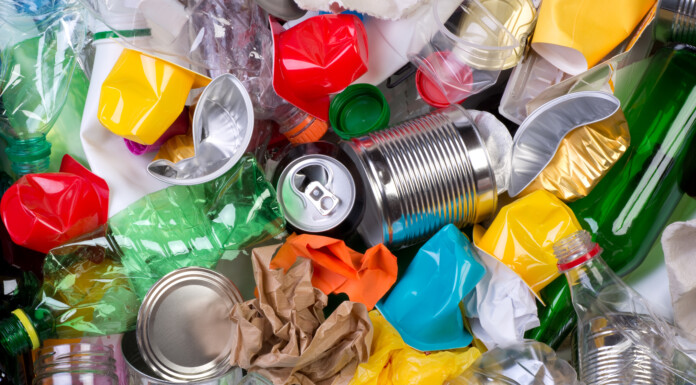Although some of New Zealand’s councils aren’t yet prepared for standardised recycling, Wairarapa’s waste experts have indicated the region is doing comparatively well.
Plans announced last year by the previous government to standardise recycling systems were meant to kick in during February.
This would mean that paper, glass, and plastic types one, two, and five would all be collected together to make messaging about recycling simpler.
These plans have now been delayed for some councils due to the cost of changing the recycling infrastructure proving too much.
However, Masterton District Council manager for assets and operations Phil Evans said that standardised recycling is set to go ahead for the district.
“Around 80 per cent of Masterton residents recycle with most recycling well,” Evans said.
“We have seen steady increases in people using household kerbside recycling and have noticed more residents and businesses using the recycling drive-thru at the Nursery Rd Transfer Station.”
Evans noted there is always room for improvement, though, especially around clean recycling.
“We hope that standardisation across the country over the next few years and the messaging that will go out to support that will help.”
The three Wairarapa district councils have a joint contract with Earthcare Environmental for rubbish and recycling, and the Nursery Rd Recycling Centre in Masterton processes all recyclables for the region.
In the 2021-22 financial year, 7115 tons of recycling was processed through the Nursery Rd Transfer Station, of which 2367 was from kerbside recycling.
This figure shot up to 9083 tons in the 2022-23 financial year, with 2435 tons from kerbside collection.
Mandy De Ritter, South Wairarapa District Council environmental sustainability advisor – who also acts as recycling spokesperson for all the region’s councils – said Wairarapa is tracking well for standardised recycling.
“Our kerbside recycling collections already collect the items that are to be standardised so there will be no change to what residents can put into the recycling bins, just a reminder of the things like no lids and not to squash items, which a lot of people do.”
She said although most residents are recycling well, a lot of work remains to be done to avoid contamination.
“There is still some education and behaviour change work to be done on recycling,” De Ritter said.
“Most people want to do the right thing but may be confused as to what needs to be done, so standardisation will provide some consistency across the country.
“We carry out bin inspections and provide information to households whose bins are contaminated, as high levels of contamination could result in the whole lorry load of recycling having to go to landfill due to tight market conditions where unclean recycling is not viable for recycling.”
De Ritter said one item that’s commonly recycled when it shouldn’t be is coffee cups.
“People think these can be recycled, but due to the plastic polymer lining there is nowhere in New Zealand that is able to separate this from the cardboard layer, so these go to landfill where it can take 20 to 30 years to decompose.”
De Ritter also noted that dirty recycling or items not meant to be recycled contaminate the entire bin when left with other recyclables.
When dirty recycling or items not meant to be included are included, De Ritter said it contaminates the entire bin.
She also noted that items should not be squashed, as the machines at the mixed recycling facility are unable to detect materials if items are squashed.
Despite a higher volume of materials being recycled, De Ritter said that waste to landfill is not going down.
“There is still a huge amount of recycling sent to landfill, whether this is due to contaminated recycling or people who go through the recycling area at the transfer station to dispose of everything at the landfill zone.”
De Ritter said that the councils’ new waste minimisation and management plan looked to move towards a circular economy to mitigate this.



Last government nanny state PC climate change solar power wind turbines and the list goes ON AND ON. We have a new government thank 😊 🙏 😀. Rate payers are being used and abused GO AWAY.